Breastfeeding mothers often have questions about what they can and cannot eat while nursing their babies. One common question is whether it is safe to consume shrimp while breastfeeding. Shrimp is a popular seafood that is low in fat and high in protein, making it a healthy addition to any diet. However, some mothers may be concerned about the potential risks and impact on their babies.
Understanding Breastfeeding and Nutrition
Breastfeeding provides babies with essential nutrients that are important for their growth and development. As a result, it is important for breastfeeding mothers to maintain a healthy and balanced diet to ensure that their babies receive all the necessary nutrients. This includes consuming a variety of foods from different food groups, including protein-rich foods such as seafood.
Key Takeaways
- Breastfeeding mothers should maintain a healthy and balanced diet to ensure that their babies receive all the necessary nutrients.
- Shrimp is a healthy and nutritious food that can be safely consumed while breastfeeding.
- It is important to consult with healthcare professionals and take necessary precautions when purchasing and preparing shrimp to ensure safety.
Understanding Breastfeeding and Nutrition
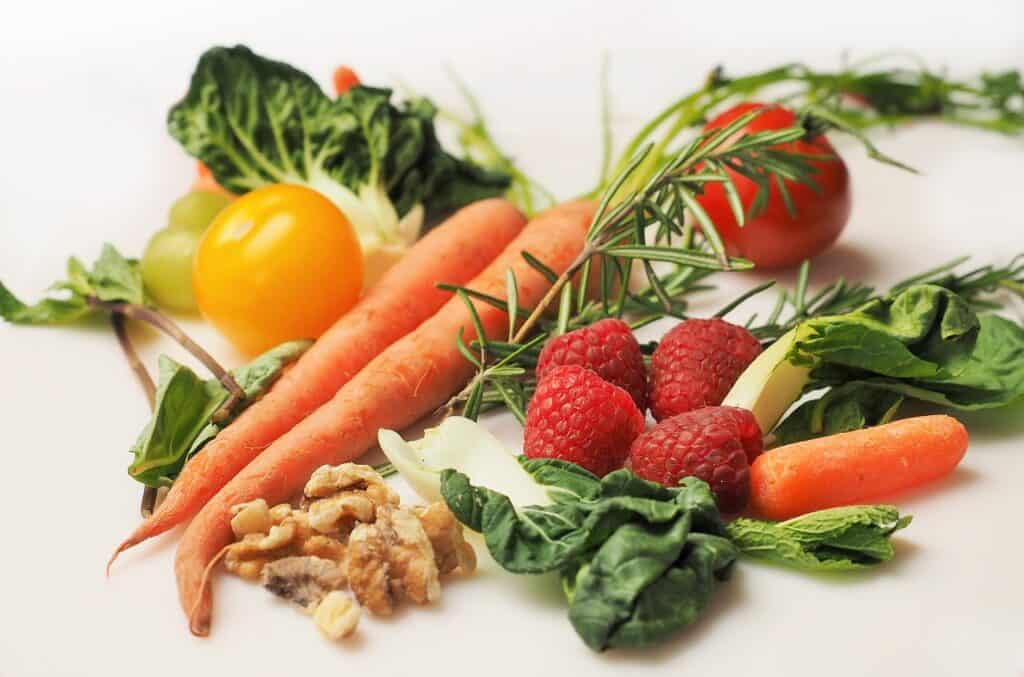
Breastfeeding is a natural process that provides essential nutrients to the newborn. It is important for lactating mothers to maintain a balanced diet to ensure that their breast milk has all the necessary nutrients for their baby’s growth and development.
Breast milk is the perfect food for babies as it contains all the essential nutrients required for their growth and development. It is rich in protein, vitamins, and minerals that are important for the baby’s overall health. Breast milk also contains antibodies that help protect the baby from infections and diseases.
A balanced diet is crucial for breastfeeding mothers to ensure that they have enough energy and nutrients to produce breast milk. They should consume foods from all food groups, including fruits, vegetables, whole grains, lean proteins, and healthy fats. It is recommended that breastfeeding mothers consume an additional 500 calories per day to meet the increased energy demands of breastfeeding.
Protein intake is important for breastfeeding mothers as it helps to repair and build tissues in the body. They should consume lean proteins such as chicken, fish, beans, and nuts to ensure that they are getting enough protein in their diet. It is recommended that breastfeeding mothers consume 1.5 grams of protein per kilogram of body weight per day.
In conclusion, breastfeeding mothers should maintain a balanced diet to ensure that their breast milk has all the necessary nutrients for their baby’s growth and development. They should consume foods from all food groups and ensure that they are getting enough protein in their diet.
The Role of Seafood in a Breastfeeding Diet
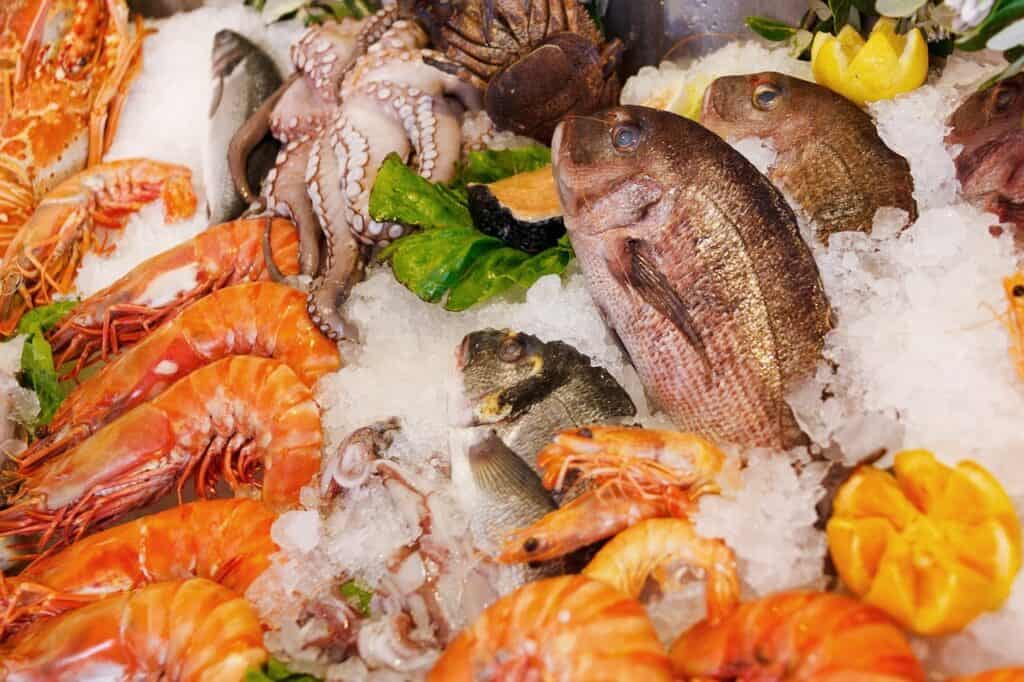
Seafood is a great source of nutrients for breastfeeding mothers. It is rich in protein, omega-3 fatty acids, and other essential vitamins and minerals that are vital for the development of the baby. However, it is important to be cautious when consuming seafood, especially when breastfeeding.
Shrimp is a popular seafood choice for many people, but is it safe to eat while breastfeeding? The answer is yes, shrimp is safe to eat while breastfeeding. It is low in mercury and high in protein, making it a great addition to a breastfeeding diet.
Other types of fish that are safe to eat while breastfeeding include salmon, tilapia, catfish, sardines, and canned light tuna. These fish are also low in mercury and high in omega-3 fatty acids, which are important for the development of the baby’s brain and eyes.
When it comes to shellfish, crab and lobster are safe to eat while breastfeeding. However, it is important to avoid high-mercury shellfish such as swordfish, king mackerel, and tilefish.
In summary, seafood can be a great addition to a breastfeeding diet. Shrimp, along with other low-mercury fish and shellfish, can provide essential nutrients for both the mother and the baby. However, it is important to be cautious and avoid high-mercury seafood to ensure the safety of the baby.
Benefits of Including Shrimp in Your Diet While Breastfeeding
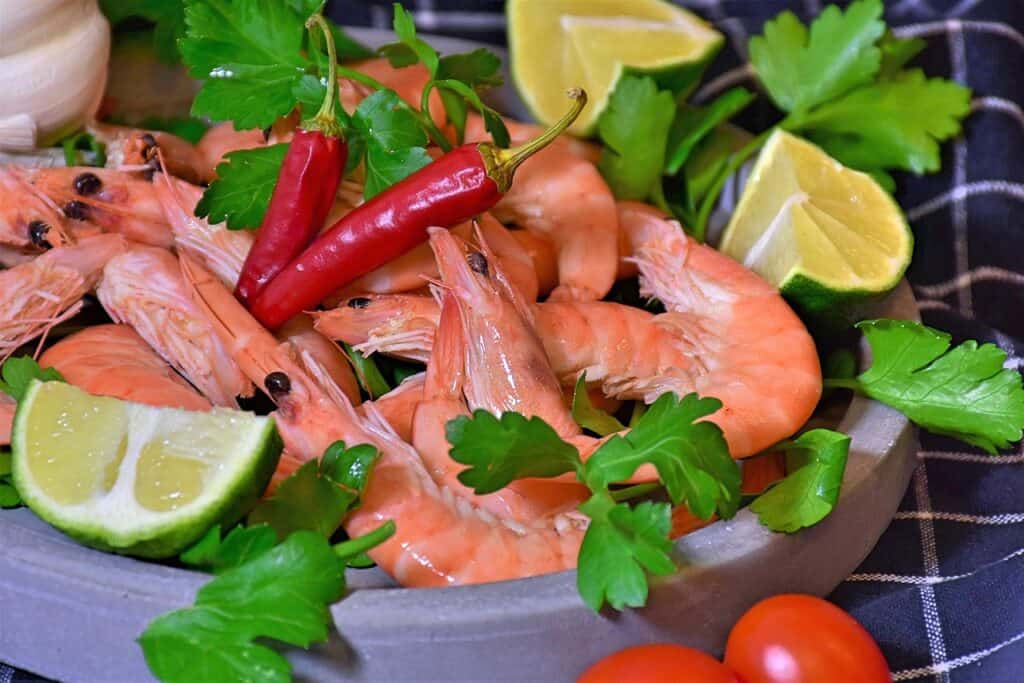
Shrimp is a delicious and nutritious seafood that can be included in a breastfeeding mother’s diet. It is a rich source of protein, omega-3 fatty acids, iron, zinc, selenium, vitamin B12, and iodine. In this section, we will discuss the benefits of including shrimp in your diet while breastfeeding.
Protein
Shrimp is an excellent source of protein, which is essential for the growth and development of the baby. It contains all the essential amino acids required by the body and is easily digestible. Breastfeeding mothers need to consume more protein to support the growth and development of their baby.
Omega-3 Fatty Acids
Shrimp is a good source of omega-3 fatty acids, especially docosahexaenoic acid (DHA). DHA is essential for the development of the baby’s brain and eyes. Breastfeeding mothers who consume foods rich in omega-3 fatty acids have higher levels of DHA in their breast milk, which is beneficial for the baby.
Iron
Shrimp is a good source of iron, which is essential for the production of hemoglobin in the body. Hemoglobin carries oxygen to the cells and tissues, which is essential for the growth and development of the baby. Breastfeeding mothers need to consume more iron to prevent anemia.
Zinc
Shrimp is a good source of zinc, which is essential for the immune system and the growth and development of the baby. Zinc is also important for wound healing and the metabolism of carbohydrates, proteins, and fats.
Selenium
Shrimp is a good source of selenium, which is an antioxidant that protects the body from damage caused by free radicals. Selenium is also important for the immune system and the metabolism of thyroid hormones.
Vitamin B12
Shrimp is a good source of vitamin B12, which is essential for the nervous system and the production of red blood cells. Breastfeeding mothers who are deficient in vitamin B12 may have low levels of the vitamin in their breast milk, which can affect the baby’s development.
Iodine
Shrimp is a good source of iodine, which is essential for the production of thyroid hormones. Thyroid hormones are important for the growth and development of the baby’s brain and nervous system. Breastfeeding mothers who are deficient in iodine may have low levels of the mineral in their breast milk, which can affect the baby’s development.
In conclusion, including shrimp in your diet while breastfeeding can provide you and your baby with many health benefits. Shrimp is a nutritious and delicious seafood that can be easily incorporated into your meals. However, it is important to consume shrimp in moderation and ensure that it is cooked properly to prevent foodborne illnesses.
Potential Risks and Concerns
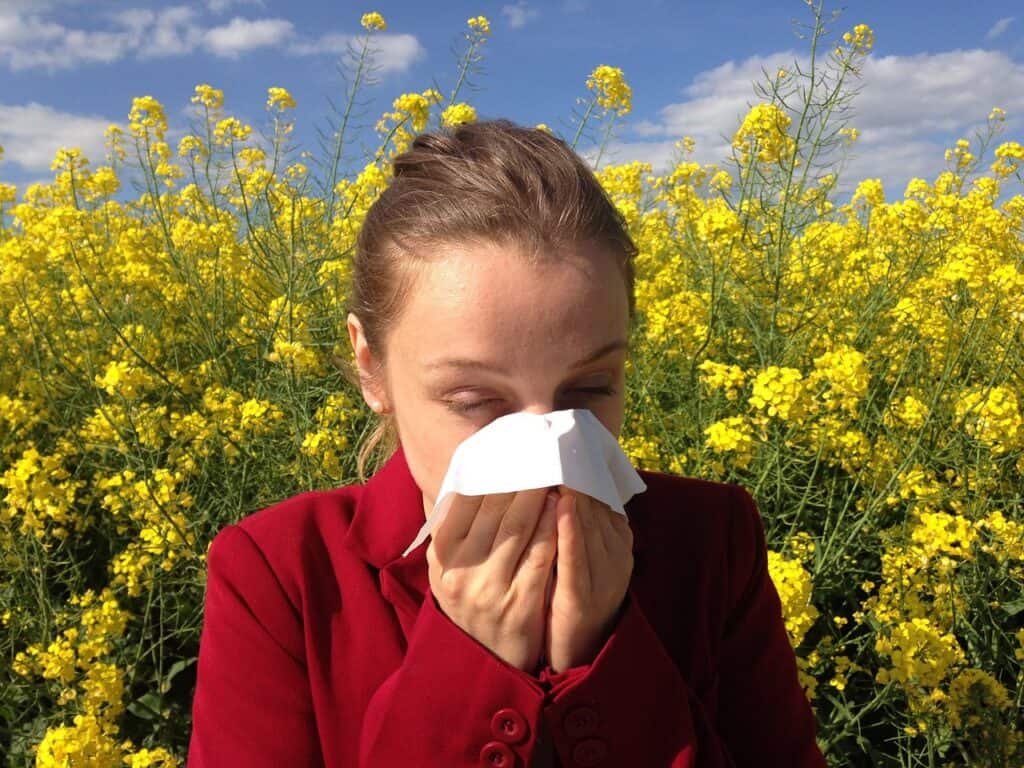
Breastfeeding mothers should be aware of the potential risks and concerns associated with consuming shrimp. Although shrimp is generally considered safe to eat, there are a few things to keep in mind.
Mercury Levels
Shrimp contains low levels of mercury, which is a toxic metal that can be harmful to the developing nervous system of a baby. However, the amount of mercury in shrimp is generally considered to be safe for breastfeeding mothers and their babies. According to the Environmental Protection Agency (EPA), pregnant and breastfeeding women can safely eat up to 12 ounces of cooked shrimp per week.
Allergy and Sensitivity
Shrimp is a shellfish, and some people are allergic to shellfish. If a breastfeeding mother has a shellfish allergy, she should avoid eating shrimp and other shellfish. If a baby is allergic to shellfish, it is possible that the allergen can be passed through breast milk, so it is important to consult with a healthcare provider if there is a concern.
In addition, some people may have a sensitivity to shrimp, which can cause symptoms such as stomach upset, diarrhea, or hives. If a breastfeeding mother experiences any of these symptoms after eating shrimp, she should avoid eating it in the future.
Food Poisoning
Shrimp can also carry harmful bacteria, such as Vibrio, which can cause food poisoning. Breastfeeding mothers should make sure that shrimp is cooked thoroughly before eating it to reduce the risk of food poisoning. It is also important to properly store and handle shrimp to prevent contamination.
Overall, while there are potential risks and concerns associated with consuming shrimp while breastfeeding, it is generally considered safe in moderation. Breastfeeding mothers should consult with a healthcare provider if they have any concerns or questions about their diet.
Understanding Food and Drink Restrictions
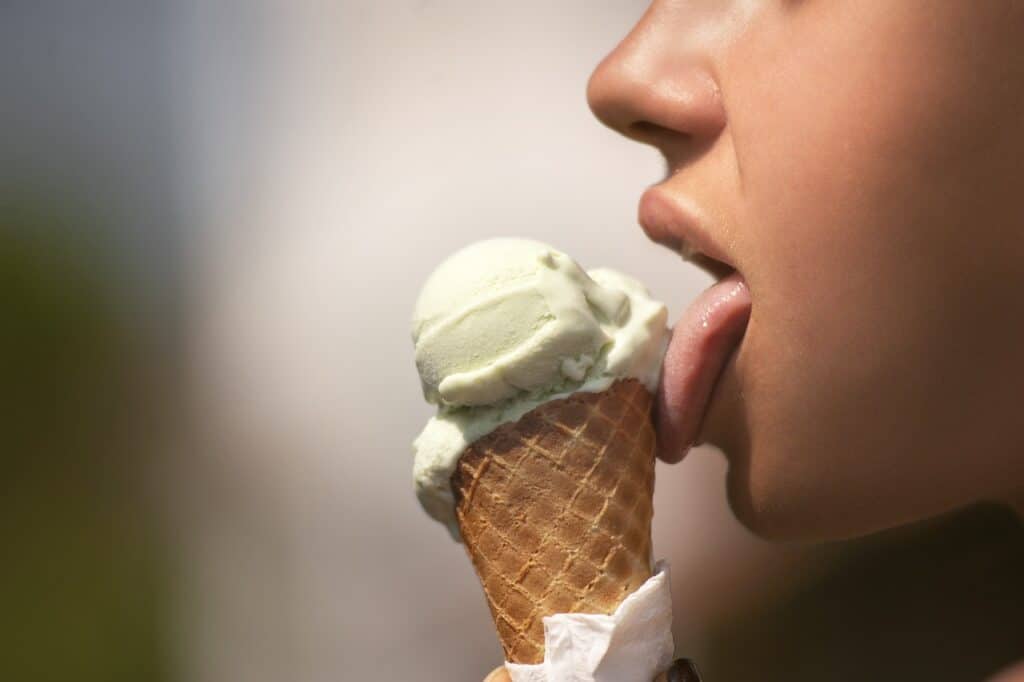
Breastfeeding mothers often wonder if they need to avoid certain foods and drinks while nursing. While some restrictions may be necessary, it is important to understand which foods and drinks to avoid and why.
Caffeine
Caffeine is a stimulant that can pass into breast milk and affect a baby’s sleep patterns. However, moderate caffeine intake is generally considered safe for breastfeeding mothers. It is recommended that nursing mothers limit their caffeine intake to no more than 300 milligrams per day, or roughly two to three cups of coffee.
Alcohol
Alcohol can also pass into breast milk and affect a baby’s development and sleep patterns. It is recommended that breastfeeding mothers avoid alcohol altogether or limit their consumption to an occasional drink. If a mother chooses to drink, it is recommended that she wait at least two hours per drink before nursing.
Garlic
Garlic is known to flavor breast milk and some babies may not like the taste. However, garlic is generally considered safe to eat while breastfeeding and may even have some health benefits for both the mother and baby.
Tea
Herbal teas are generally considered safe to drink while breastfeeding. However, some teas, such as those containing caffeine or certain herbs, may need to be avoided. It is recommended that nursing mothers consult with their healthcare provider before drinking any herbal tea.
Beer and Wine
While some cultures believe that beer or wine can increase milk production, there is no evidence to support this claim. In fact, alcohol can actually decrease milk production. It is recommended that breastfeeding mothers avoid beer and wine altogether or limit their consumption to an occasional drink.
Chocolate
Chocolate contains a small amount of caffeine and may also contain other stimulants that can pass into breast milk. However, moderate chocolate consumption is generally considered safe for breastfeeding mothers.
Foods to Avoid
Some babies may be sensitive to certain foods that their mothers eat. Common culprits include dairy, soy, nuts, and eggs. If a mother notices that her baby is fussy or has other symptoms after nursing, she may want to try eliminating these foods from her diet to see if it makes a difference.
In summary, while there are some foods and drinks that breastfeeding mothers may need to avoid, many are safe to consume in moderation. It is important for nursing mothers to be aware of potential restrictions and to consult with their healthcare provider if they have any concerns.
Impact on Baby and Milk Production

When it comes to eating shrimp while breastfeeding, many new mothers are concerned about the impact it may have on their baby’s health and milk production. Here’s what you need to know:
Milk Production
There is no evidence to suggest that eating shrimp while breastfeeding will impact milk production. As long as the mother is consuming a balanced diet and staying hydrated, her milk supply should remain consistent.
Impact on Baby
Breastfed babies can be sensitive to certain foods that their mother consumes, but shrimp is not typically one of them. However, if a baby is allergic to seafood, they may experience an allergic reaction if their mother eats shrimp or any other type of seafood.
Fussy and Colicky Babies
Some babies may be more fussy or colicky after their mother eats certain foods, but this is not always the case. If a baby is particularly gassy or fussy after their mother eats shrimp, it may be worth avoiding shrimp and other seafood until the baby is a bit older.
Stools
It is normal for a breastfed baby’s stool to change color and consistency based on their mother’s diet. If a baby’s stool becomes particularly loose or watery after their mother eats shrimp, it may be a sign of an allergy or sensitivity.
Overall, eating shrimp while breastfeeding is generally safe for both the mother and baby. However, if a baby shows signs of an allergic reaction or sensitivity, it may be best to avoid shrimp and other seafood until they are a bit older.
Consulting with Healthcare Professionals

Breastfeeding mothers who are concerned about consuming shrimp should consult with their healthcare provider, a nutritionist, or the American Academy of Pediatrics for guidance. These professionals can provide individualized advice based on the mother’s health status, medical history, and the age and health of the breastfeeding infant.
A healthcare provider can help determine if a mother has a shellfish allergy or intolerance that could be passed on to the infant through breast milk. They can also advise on any potential risks associated with consuming shrimp, such as mercury contamination or foodborne illness.
A nutritionist can provide guidance on incorporating shrimp into a balanced diet while breastfeeding. They can advise on portion sizes and ways to prepare shrimp that are healthy and safe for both the mother and infant.
The American Academy of Pediatrics recommends that breastfeeding mothers consume a variety of foods, including seafood, as part of a healthy diet. They advise against consuming fish with high levels of mercury, but shrimp is generally considered to be a low-mercury seafood option.
Overall, consulting with healthcare professionals is an important step for breastfeeding mothers who have questions or concerns about consuming shrimp. These professionals can provide valuable guidance and support to ensure that both the mother and infant are healthy and well-nourished.
Purchasing and Preparing Shrimp Safely
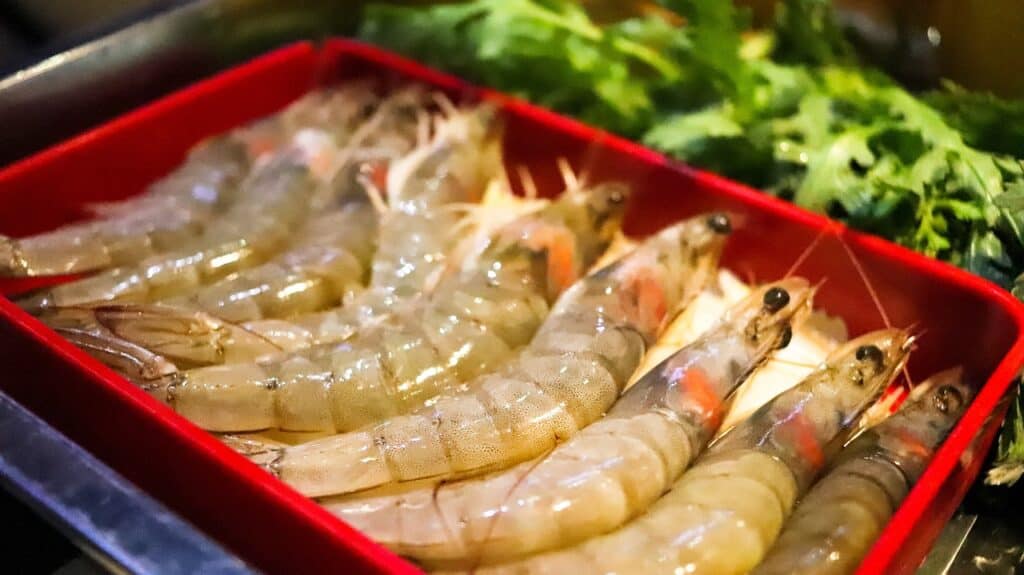
When it comes to purchasing and preparing shrimp safely, there are a few things to keep in mind, especially for breastfeeding mothers. Here are some tips to follow:
Purchase Shrimp from a Hygienic Store
It is important to purchase shrimp from a store that is clean and hygienic. This will help reduce the risk of contamination and foodborne illnesses. Look for stores that have a good reputation for selling fresh seafood and have a clean and regulated environment.
Consider Frozen Shrimp
If you are unsure about the freshness of the shrimp available at your local store, you may want to consider purchasing frozen shrimp instead. Frozen shrimp is often fresher than the shrimp you find in the seafood section of your local grocery store. It is also more convenient as it can be stored in your freezer until you are ready to use it.
Take Hygienic Precautions
When preparing shrimp, it is important to take hygienic precautions. This includes washing your hands thoroughly before and after handling the shrimp, as well as cleaning any utensils or surfaces that come into contact with the shrimp.
Follow Safety Precautions
To reduce the risk of foodborne illnesses, it is important to cook shrimp thoroughly. This means cooking it until it is pink and opaque. Do not eat raw or undercooked shrimp as it can contain harmful bacteria that can be harmful to both you and your baby.
By following these tips, you can purchase and prepare shrimp safely while breastfeeding.
Conclusion
In conclusion, consuming shrimp while breastfeeding is generally safe and can provide numerous nutritional benefits for both the mother and baby. However, as with any food, it is important to exercise caution and moderation.
Shrimp is a low-fat, high-protein food that is rich in essential nutrients such as omega-3 fatty acids, vitamin B12, and iron. These nutrients can help support the growth and development of the baby, as well as promote overall maternal health.
While shrimp is generally safe to eat while breastfeeding, it is important to be aware of any potential allergies or sensitivities that the mother or baby may have. If the mother or baby experiences any adverse reactions after consuming shrimp, it is recommended to consult with a healthcare provider.
Additionally, it is important to ensure that the shrimp is properly cooked and sourced from a reputable supplier to minimize the risk of foodborne illness. Pregnant and breastfeeding women are at an increased risk of food poisoning, so it is important to take extra precautions when handling and preparing food.
Overall, consuming shrimp in moderation as part of a balanced diet can be a healthy and nutritious choice for breastfeeding mothers.
Related Posts:
Frequently Asked Questions
Is it safe to eat shrimp while breastfeeding?
Yes, it is safe to eat shrimp while breastfeeding. Shrimp is a low-mercury seafood that is high in protein and nutrients such as vitamin D, vitamin B12, and selenium. However, it is important to ensure that the shrimp is cooked properly to avoid any potential foodborne illnesses.
Can babies be allergic to shrimp through breast milk?
Yes, it is possible for babies to be allergic to shrimp through breast milk. If a baby is allergic to shrimp, they may experience symptoms such as hives, swelling, vomiting, or difficulty breathing. If you suspect that your baby is allergic to shrimp, it is important to speak with your healthcare provider.
What seafood to avoid while breastfeeding?
It is recommended that breastfeeding mothers avoid high-mercury seafood such as shark, swordfish, king mackerel, and tilefish. These types of seafood can accumulate high levels of mercury, which can be harmful to a baby’s developing nervous system. It is also important to avoid raw or undercooked seafood to prevent foodborne illnesses.
Can I eat salmon while breastfeeding?
Yes, salmon is a safe and nutritious seafood to eat while breastfeeding. Salmon is high in omega-3 fatty acids, which are beneficial for both mother and baby. However, it is important to choose wild-caught salmon over farmed salmon, as farmed salmon may contain higher levels of contaminants.
Can I eat mussels while breastfeeding?
Yes, mussels are a safe and nutritious seafood to eat while breastfeeding. Mussels are low in mercury and high in protein, iron, and other nutrients. However, it is important to ensure that the mussels are cooked properly to avoid any potential foodborne illnesses.
Can I eat sushi while breastfeeding?
Yes, you can eat sushi while breastfeeding, but it is important to choose sushi that is made with cooked seafood or vegetables. Raw seafood may contain harmful bacteria or parasites that can cause foodborne illnesses. It is also important to avoid sushi that contains high-mercury seafood such as tuna.

Iesha is a loving mother of 2 beautiful children. She’s an active parent who enjoys indoor and outdoor adventures with her family. Her mission is to share practical and realistic parenting advice to help the parenting community becoming stronger.
